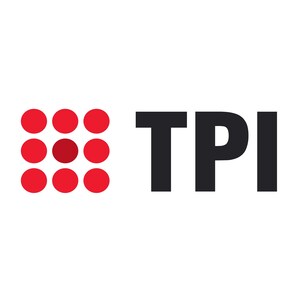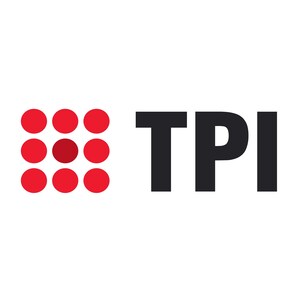TPI: Visa Restrictions Delaying Transition to Global Service Delivery
Change initiatives requiring rapid mobilization of resources facing significant challenges
Contingency plans essential, says leading independent sourcing advisor
STAMFORD, Conn., Oct. 6, 2011 /PRNewswire/ -- TPI, an Information Services Group company (ISG) (NASDAQ: III) and the leading independent sourcing data and advisory firm in the world, says organizations in the United States planning significant change initiatives could see their projects delayed by staffing shortages due to current restrictions on visas for foreign workers.
Implementing global service delivery typically requires rapid mobilization of resources. Historically, IT outsourcers have relied on a variety of visas to meet clients' demand for skills and aggressive deployment schedules. However, this approach is becoming increasingly untenable.
"We're seeing a growing number of visa rejections and delays causing concerns with local posting requirements and slowing IT projects," said Steven Hall, Partner & Managing Director, ADM and Cloud Computing Services, TPI. "Clients and service providers are facing significant challenges staffing the critical transition phase of projects. It's essential that they put into place contingency strategies to adjust for delays in bringing vendor resources on board."
TPI outlined five key elements of a prudent transition contingency plan:
- Plan for delays to impact knowledge acquisition and knowledge transfer processes. "The traditional time from assignment of offshore resources to arrival of 2 to 4 weeks is now 4 to 6 weeks," said Kathy Welch, Senior Advisor, TPI. "Worse, you have to expect that some resources will be denied visas, requiring flexibility in knowledge transition planning."
- Develop resource acquisition fallback options. Resource mobilization delays will be inevitable, Welch said, and internal staffing plans should be adjusted accordingly. "During a transition, some subject matter experts (SMEs) will leave the company absent financial incentives to stay on and help. A lag in service provider transition resources can mean higher 'stay' bonuses and SME costs. These all drop directly to the bottom line, diminishing the value of the transaction."
- Find better ways to leverage technology and connectivity. Collaboration software and document sharing have a cohesive effect on virtual teams. "Focus on integrating collaboration tools immediately," Welch said. "Getting the appropriate connections set up is never as easy or as quick as it appears to be."
- Concentrate more transition work offshore. In some situations, the typical transition model can be inverted so that U.S.-based resources move offshore to work side-by-side with offshore team members at the service provider's site. "This can keep transition on track while improving cross-communication," Welch said. "Moreover, you can gain insight into how things actually work offshore, which will ultimately benefit the relationship."
- Jointly develop a risk mitigation plan. The current challenges are not isolated to India-heritage firms. U.S.- and European-heritage service providers have also experienced problems with visa processing. Facilitate dialogue between the teams and develop mitigation plans for the portfolio. Given the tight schedules of transitions, these plans should be reviewed and adjusted weekly.
For more information about transition contingency planning, please contact Kathy Welch ([email protected]).
About TPI
TPI, an Information Services Group company, is the founder and innovator of the sourcing advisory industry and the leading independent sourcing data and advisory firm in the world. TPI advisors are expert at a broad range of business support functions and related research methodologies. Drawing on their deep functional domain expertise and extensive practical experience, they collaborate with organizations across all major industries to help them advance their business operations through the best combination of business process improvement, shared services, outsourcing and offshoring. For additional information, visit www.tpi.net.
About Information Services Group
Information Services Group (ISG), founded in 2006, is a leading technology insights, market intelligence and advisory services company. ISG has three go-to-market brands: TPI, the leading independent sourcing data and advisory firm in the world; Compass, the premier independent global provider of business and information technology benchmarking, performance improvement, data and analytics services; and STA Consulting, a premier independent information technology advisor serving the public sector. The company has nearly 700 employees and operates in 21 countries. Based in Stamford, Conn., ISG has a proven leadership team with global experience in information-based services and a track record of creating significant value for shareowners, clients and employees. For additional information, visit www.informationsg.com.
SOURCE TPI
WANT YOUR COMPANY'S NEWS FEATURED ON PRNEWSWIRE.COM?
Newsrooms &
Influencers
Digital Media
Outlets
Journalists
Opted In





Share this article